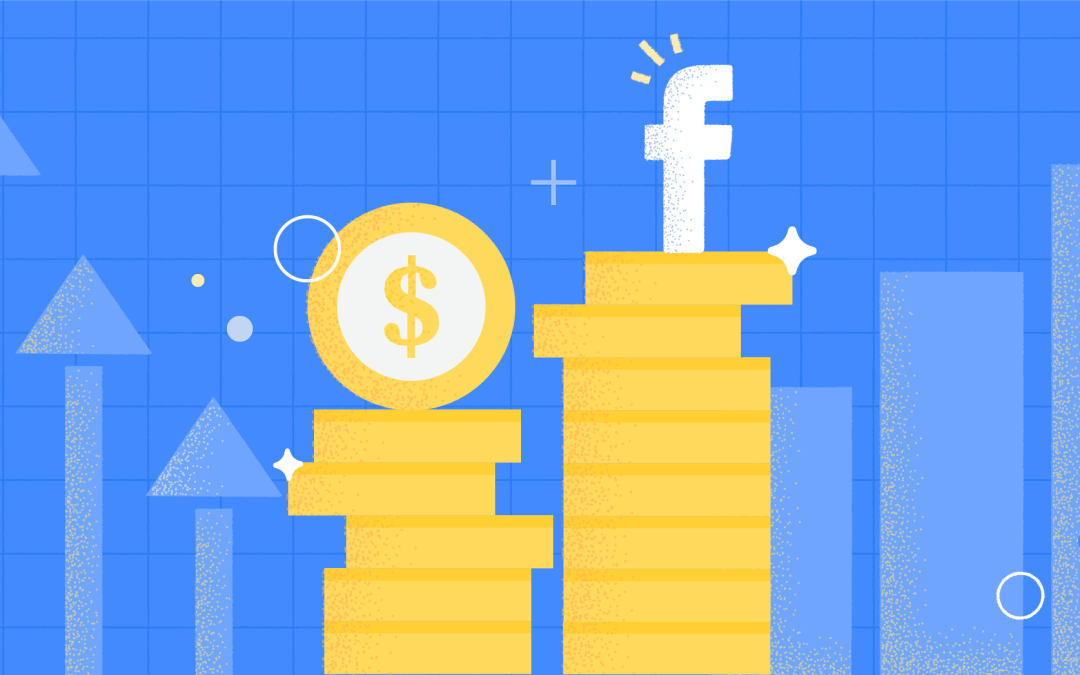From sharing posts about your latest vacation to connecting with long-lost friends, Facebook has become an integral part of our lives. But did you know that it can also help you make money? That’s right, Facebook Pay is not just a convenient way to send money to friends and family; it offers a whole new avenue for earning income. Whether you’re a small business owner looking to expand your customer base or an aspiring content creator seeking monetization opportunities, this article will delve into the fascinating world of how Facebook Pay works and how it can turn your social media presence into cold hard cash.
Linking Payment Methods To Facebook Pay
With the rise of digital platforms and the increasing reliance on online transactions, Facebook Pay aims to make peer-to-peer payments more convenient than ever before. One of the key features of Facebook Pay is the ability to link various payment methods, such as credit cards and PayPal accounts, to your Facebook profile. This integration allows for seamless transactions across different platforms within the Facebook ecosystem.
Linking payment methods to Facebook Pay offers a level of convenience that goes beyond just making peer-to-peer payments. By having your preferred payment methods stored within your Facebook profile, you can easily use them across a variety of apps and services offered by the social media giant. Whether you’re shopping on Marketplace or donating to a charity through a virtual event, linking your payment methods ensures swift and hassle-free transactions.
Moreover, linking payment methods to Facebook Pay enhances security measures. By centralizing all transaction information within one platform, it becomes easier for users to monitor their financial activities and identify any suspicious or fraudulent charges. Additionally, should any unauthorized transactions occur, having linked payment methods enables quick response times from both financial institutions and Facebook’s dedicated customer support team.
Making Purchases With Facebook Pay
With the rise of convenient online shopping, Facebook Pay has become a game-changer in the world of digital payments. This seamless payment method allows users to make purchases directly within the Facebook app, eliminating the need for multiple transactions or redirects to external websites. From clothing and accessories to home goods and electronics, there is no shortage of products that can be bought using Facebook Pay. Whether you’re perusing through your favorite brands’ posts or encountering a sponsored ad that catches your eye, making a purchase is just a few taps away.
- One notable advantage of using Facebook Pay for purchases is the added layer of security it provides. With features like two-factor authentication and encryption technology, users can have peace of mind knowing their financial information is safeguarded during transactions. Additionally, since Facebook already has access to users’ personal data and preferences, it can tailor recommended products based on their interests and past purchases – making shopping experiences more personalized and efficient.
- Moreover, purchasing with Facebook Pay also opens up doors for unique promotions and exclusive offers from various businesses. Many companies now take advantage of targeted advertising on social media platforms like Facebook to provide customized discounts or rewards specifically for users who opt to buy through this payment method. These offerings not only incentivize consumers but also encourage them to engage more with brands directly within the app – fostering strong customer relationships that extend beyond simple one-time transactions.
Security And Privacy Features Of Facebook Pay
Facebook Pay is not only a convenient way to send and receive money on the popular social media platform, but it also comes with robust security and privacy features to protect its users. One of the standout features is end-to-end encryption, which ensures that all transactions made through Facebook Pay are secure from potential hackers. This means that only the sender and receiver have access to the transaction information, making it nearly impossible for any third party to intercept or access personal financial data.
In addition to encryption, Facebook Pay also employs multiple layers of authentication, such as biometric recognition and two-factor authentication. By requiring users to verify their identity using fingerprint or facial recognition technology, Facebook adds an extra layer of protection against unauthorized access. Furthermore, enabling two-factor authentication requires users to provide an additional verification code sent via SMS or email before completing a transaction. These security measures help ensure that even if someone manages to gain access to a user’s account, they would still need additional credentials before being able to make any financial transactions.
To further enhance user privacy on Facebook Pay, the platform allows customizability in terms of what personal information is shared during transactions. Users have control over what information they choose to include when sending or receiving money, including their name and profile picture visibility. This flexible privacy feature gives individuals more agency over their data while still enjoying the convenience of using Facebook Pay.
Benefits And Drawbacks Of Using Facebook Pay
- One of the benefits of using Facebook Pay is its convenience. The platform allows users to make payments seamlessly without having to exit the app or switch between different payment methods. Whether you want to purchase goods on Marketplace, send money to a friend, or donate to a cause, Facebook Pay offers a one-stop solution for all your financial transactions within the Facebook ecosystem.
- Another advantage of using Facebook Pay is its enhanced security features. With encryption technology and secure payment processing, your financial information is protected from unauthorized access. In addition, you can enable multi-factor authentication for an extra layer of security. This ensures that only you have access to your account and makes it more difficult for hackers or scammers to compromise your personal information.
However, there are also drawbacks when it comes to using Facebook Pay that users should be aware of. One major concern is the privacy implications associated with linking your financial information directly with Facebook. While the company claims that they do not use payment transaction data for ad targeting purposes, there’s always a risk that sensitive information could be mishandled or compromised in some way. Additionally, if you encounter any issues with payments or refunds through Facebook Pay, getting customer support can sometimes be challenging as their response time may vary and there may not be direct contact options available.
Conclusion
In conclusion, Facebook Pay is a convenient and secure way for users to make purchases, send money, and donate to causes within the Facebook platform. With its integration across various apps such as Instagram and Messenger, it offers users a seamless experience across multiple platforms. Additionally, the added layer of security measures like PINs and biometric authentication ensures that transactions are protected.
While some may be skeptical about entering their financial information into yet another online platform, Facebook has made significant strides in strengthening their security protocols. By partnering with established payment processors like PayPal and Stripe, they have shown dedication to providing users with reliable payment options. Furthermore, the ability to add multiple payment methods allows for flexibility and convenience when using Facebook Pay.
Overall, it is clear that Facebook Pay aims to simplify the process of making payments on social media platforms while maintaining user privacy and security. As more people embrace digital payments and e-commerce continues to thrive, this feature could potentially revolutionize how we transact within social networks. With its strong foundation in partnerships with trusted financial institutions and commitment to user protection, it will be interesting to see how Facebook Pay evolves in the years ahead.

